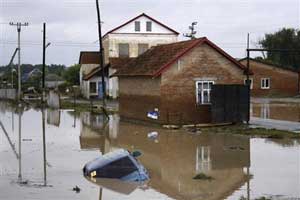09 Jul 2012 - {{hitsCtrl.values.hits}}
 President Vladimir Putin has ordered an investigation into accusations that officials could have done more to prevent floods killing at least 150 people in southern Russia, hoping to limit the criticism that has followed earlier disasters.
President Vladimir Putin has ordered an investigation into accusations that officials could have done more to prevent floods killing at least 150 people in southern Russia, hoping to limit the criticism that has followed earlier disasters..jpg) DAY OF MOURNING
DAY OF MOURNING
18 Nov 2024 2 hours ago
18 Nov 2024 3 hours ago
18 Nov 2024 3 hours ago
18 Nov 2024 4 hours ago
18 Nov 2024 8 hours ago